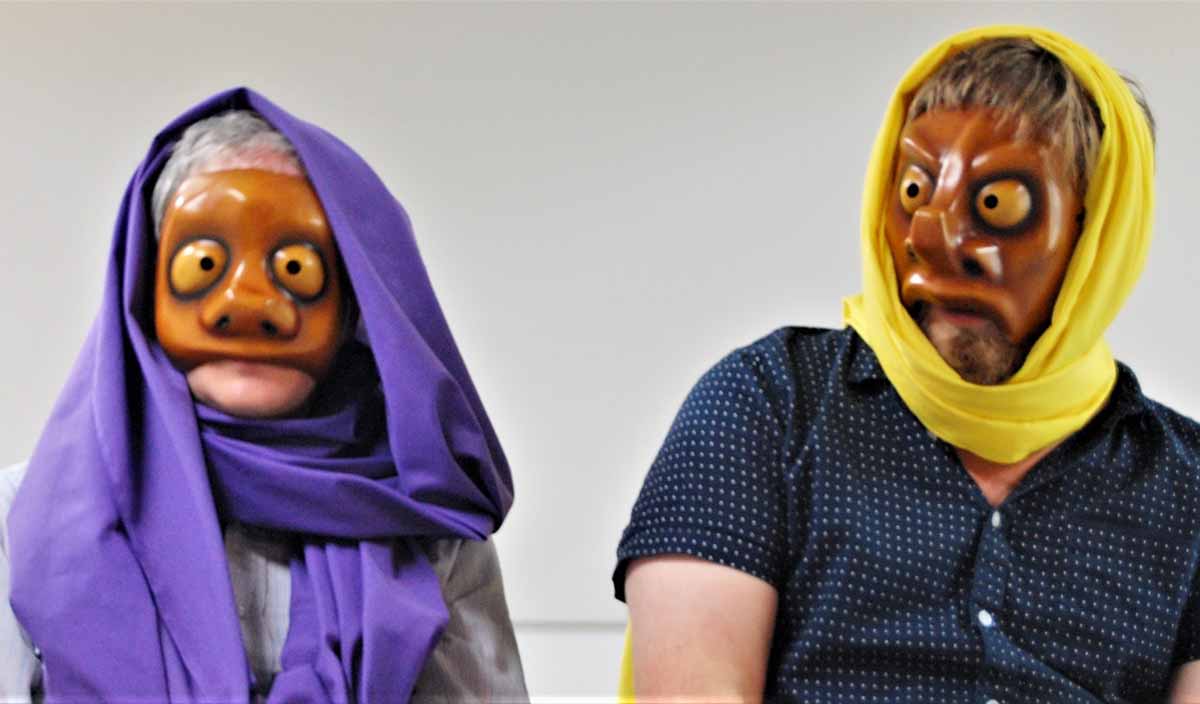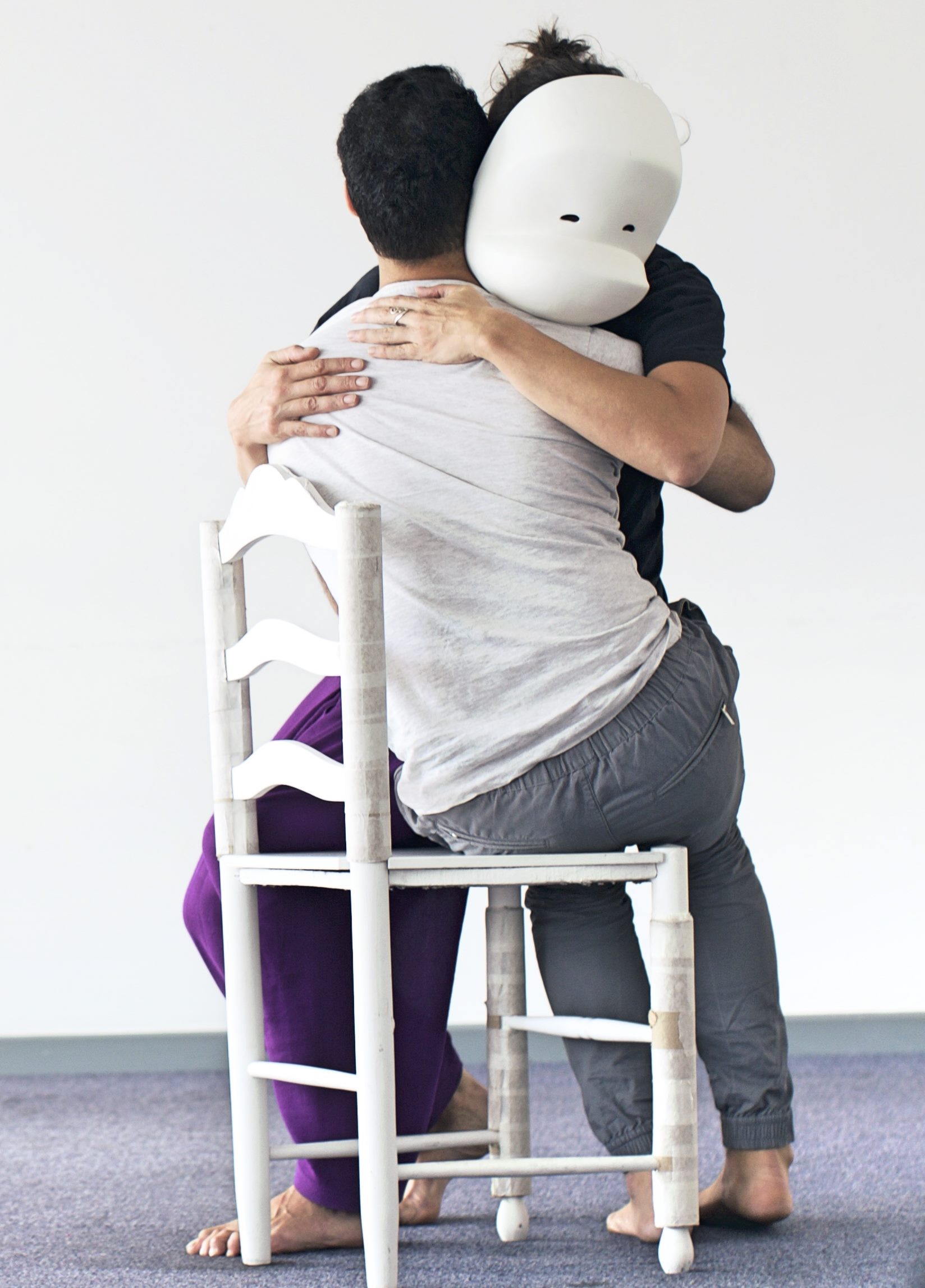Content
Our improv classes, for both beginner and advanced improvisers, feature original games and formats as well as revisited old favourites. We spend a lot of time playing to dissolve performance anxiety.
Composition
Our longest improv class sessions usually consist of three periods. First we move, breathe, and relax with the entire group. Then we practice games, in pairs or groups, with everyone taking part at the same time. In the end, we practise scenes, with performers playing in front of the other participants voluntarily. A beginner improv class will concentrate on the two first periods, while an advanced class will make more space for scene work and story-telling.
Method
Our improv classes are highly interactive and conditioned by the level of pleasure and energy in the group. We take the time to unwind and warm up properly and focus on space and movement as much as dialogue. Our guiding principles are cooperation, pleasure, and forgiveness.
Pace
The speed at which beginner improv students acquire the necessary skills depends on each individual. The confidence to speak with ease in front of an audience manifests sooner or later through practice and exploration. The capacity to listen and adjust in real-time to any given situation is harder to master. Participants will need to provide themselves with the freedom to experiment and permission to fail.
Learning
Each improv class session relates to a particular aspect of improvisation and solidifies previous training. Learning also happens in breakthroughs. As you play or watch other people play, you suddenly realise something about yourself or how you do things, a moment of clarity that must be experienced and cannot be imparted. Receiving feedback will help you make sense of it all.


